Filter by
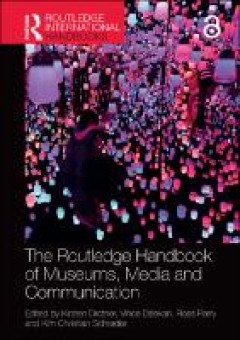
The routledge handbook of museums, media and communication
Museums today find themselves within a mediatised society, where everyday life is conducted in a data-full and technology-rich context. In fact, museums are themselves mediatised: they present a uniquely media-centred environment, in which communicative media is a constitutive property of their organisation and of the visitor experience. The Routledge Handbook of Museums, Media and Communicatio…
- Edition
- -
- ISBN/ISSN
- 9781317197447
- Collation
- xviii, 339p. : ill.
- Series Title
- -
- Call Number
- 069 SCH t

Ageing and health : the politics of better policies
One of the most important political and economic challenges facing Europe and elsewhere is the ageing of societies. Must ageing populations create conflict between generations and crisis for health systems? Our answer is no. The problem is not so much demographic change as the political and policy challenge of creating fair, sustainable and effective policies for people of all ages. This book, …
- Edition
- -
- ISBN/ISSN
- 9781108973236
- Collation
- xvii, 188 p. ; ill
- Series Title
- -
- Call Number
- 362.10846 GEE a
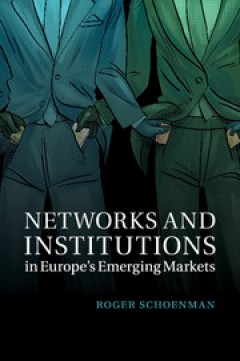
Networks and institutions in Europe's emerging markets
Do ties between political parties and businesses harm or benefit the development of market institutions? The post-communist transition offers an unparalleled opportunity to explore when and how networks linking the polity and the economy support the development of functional institutions. A quantitative and qualitative analysis covering eleven post-socialist countries combined with detailed cas…
- Edition
- -
- ISBN/ISSN
- 9781139381628
- Collation
- xiv, 248 p. ; ill
- Series Title
- -
- Call Number
- 322.30947 SCH n
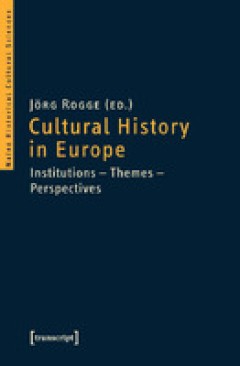
Cultural history in Europe : institutions - themes - perspectives
What is the current state of discussion in Cultural History? Which European institutions engage exclusively in Cultural History and which topics do they address? And how will Cultural History develop in the future? These and other questions are raised by European scholars in the discussion of Institutions, Themes and Perspectives of Cultural History in this volume. It provides a profound overvi…
- Edition
- -
- ISBN/ISSN
- 9783839417249
- Collation
- 259p.
- Series Title
- -
- Call Number
- 940.5 CUL r

Economics without borders : economic research for European policy challenges
If treated as a single economy, the European Union is the largest in the world, with an estimated GDP of over 14 trillion euros. Despite its size, European economic policy has often lagged behind the rest of the world in its ability to generate growth and innovation. Much of the European economic research itself often trails behind that of the USA, which sets much of the agenda in mainstream ec…
- Edition
- -
- ISBN/ISSN
- 9781316636398
- Collation
- xxvi, 666 p. ; ill
- Series Title
- -
- Call Number
- 330.94 BLU e
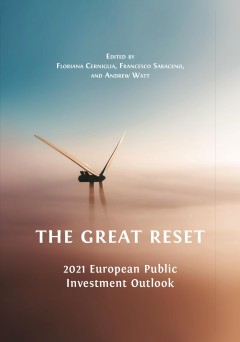
The Great Reset: 2021 European Public Investment Outlook
This timely and insightful collection of essays written by economists from a range of academic and policy institutes explores the subject of public investment through two avenues. The first examines public investment trends and needs in Europe, addressing the initiatives taken by European governments to tackle the COVID-19 recession and to rebuild their economies. The second identifies key doma…
- Edition
- -
- ISBN/ISSN
- 9781800643529
- Collation
- xxvii, 222 p. : ill. ; 17.8 cm.
- Series Title
- -
- Call Number
- 332.64 CER t
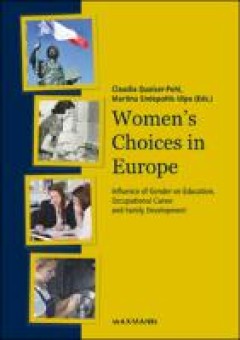
Women's choices in Europe : influence of gender on education, occupational ca…
The options women have to shape their lives have dramatically increased in the last decades, and this is true for all European countries. Changes in their societies with respect to women’s rights have been fundamental, amongst other things as a result of the women’s movement, which caused one of the greatest social revolutions of the 20th century. But considering the different starting poin…
- Edition
- -
- ISBN/ISSN
- 9783830977438
- Collation
- vi, 229 p. : ill
- Series Title
- -
- Call Number
- 305.4094 QUA w
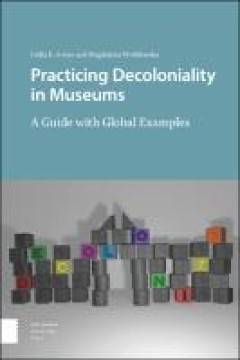
Practicing decoloniality in museums : a guide with global examples
The cry for decolonization has echoed throughout the museum world. Although perhaps most audibly heard in the case of ethnographic museums, many different types of museums have felt the need to engage in decolonial practices. Amidst those who have argued that an institution as deeply colonial as the museum cannot truly be decolonized, museum staff and museologists have been approaching the issu…
- Edition
- -
- ISBN/ISSN
- 9789048554836
- Collation
- 125 p.
- Series Title
- -
- Call Number
- 069 ARI p

Comparative renewables policy : political, organizational and European fields
Challenging one-eyed technology-focused accounts of renewables policy, this book provides a ground-breaking, deep-diving and genre-crossing longitudinal study of policy development. The book develops a multi-field explanatory approach, capturing inter-relationships between actors often analyzed in isolation. It provides empirically rich and systematically conducted comparative case studies on t…
- Edition
- -
- ISBN/ISSN
- 9780429198144
- Collation
- xvii, 259 p. : ill.
- Series Title
- Routledge Studies on the Governance of Sustainability in Europe
- Call Number
- 333.794094 BOA c
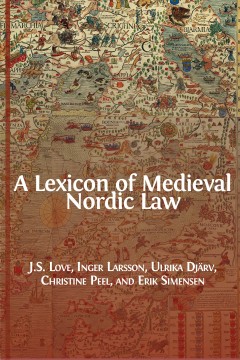
A lexicon of medieval nordic law
This volume is an indispensable resource for scholars and students of medieval Scandinavia. This polyglot dictionary draws on the vast and vibrant range of vernacular legal terminology found in medieval Scandinavian texts – terminology which yields valuable insights into the quotidian realities of crime and retribution; the processes, application and execution of laws; and the cultural and so…
- Edition
- -
- ISBN/ISSN
- 9781783748174
- Collation
- 579 p. : ind. ; 24 cm
- Series Title
- -
- Call Number
- 349.48090203 LEX l
 Computer Science, Information & General Works
Computer Science, Information & General Works  Philosophy & Psychology
Philosophy & Psychology  Religion
Religion  Social Sciences
Social Sciences  Language
Language  Pure Science
Pure Science  Applied Sciences
Applied Sciences  Art & Recreation
Art & Recreation  Literature
Literature  History & Geography
History & Geography